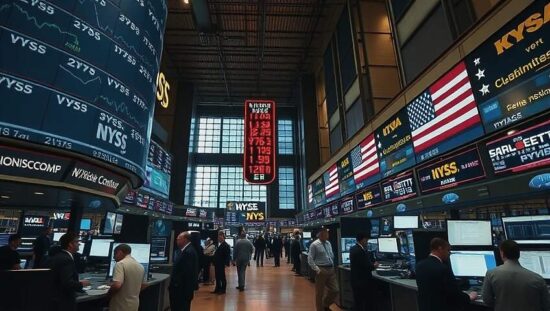European markets experienced a sharp downturn Tuesday, with the German DAX index shedding 1.7% to close at 23,181 points. The decline, which accelerated throughout the trading day, reflects growing anxieties amongst global investors and signals a potential shift in sentiment away from the previously dominant narrative of relentless growth, particularly surrounding technology stocks.
Analysts attribute the DAX’s performance to a growing realization of stretched valuations. Christine Romar, Head of Europe at CMC Markets, pointed to recent reports indicating that major institutional investors are reducing their holdings in companies like Nvidia, suggesting a reassessment of previously unquestioned assumptions about market growth and profitability. “The long-neglected theme of valuation is once again taking center stage, which may not be detrimental to a healthy and sustainable development of stock prices” she observed.
The market jitters aren’s confined to equities; they are also impacting the cryptocurrency space, contributing to the DAX’s vulnerability. Romar highlighted the index’s breach of its 200-day moving average as a clear sell signal. While some investors have responded accordingly, the future trajectory remains uncertain. A swift rebound to the 23,440-point threshold would retrospectively be interpreted as a “bear trap” masking underlying concerns.
Within the DAX, performance was markedly uneven. Only Deutsche Börse, Eon and Zalando managed to post gains by the close of trading, while Deutsche Bank, Commerzbank and Siemens Energy languished at the bottom of the index, reflecting broader anxieties within the financial and energy sectors.
The downward pressure on the DAX was partially offset by falls in energy prices. Natural gas futures for delivery in December dropped to €32 per megawatt-hour, a decrease of 1%, potentially translating to consumer electricity prices of at least 8-9 cents per kilowatt-hour should these levels persist. Brent crude oil also saw a slight decline, falling to $64.14 per barrel, though the impact on European consumer prices remains to be seen.
The euro also weakened slightly, trading at $1.1575, contributing to a broader picture of increasing financial instability and raising questions about the sustainability of current market trends. Observers are now keenly awaiting indicators – whether a rapid rebound or continued decline – that will illuminate the direction of European markets in the coming weeks.





